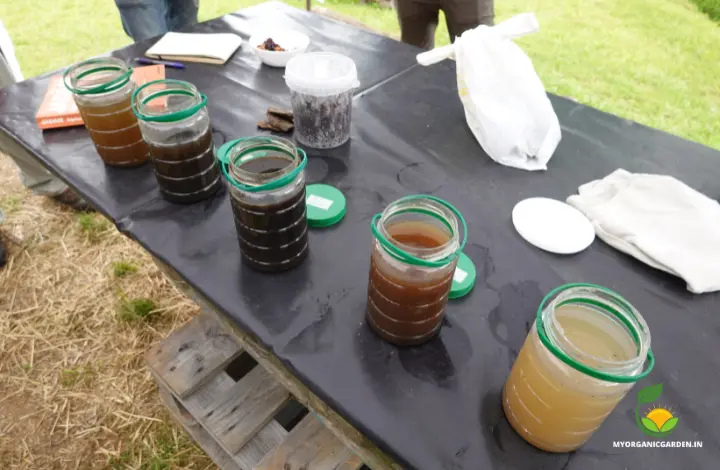Indian summers are getting hotter and hotter. In such relentless heat and arid conditions, as gardeners we face a big challenge in keeping our plants healthy and vibrant. One crucial element in this battle against the sweltering sun is the quality of the soil, and nothing enhances soil vitality quite like well-prepared compost. Composting not only enriches the soil with essential nutrients but also improves its ability to retain moisture, a key factor in helping plants endure the harsh summer months. In this article, we will explore effective composting recipes tailored to the unique demands of the Indian climate, ensuring your garden remains a lush oasis even when temperatures soar.
Understanding Compost Heat and Plant Burns
When adding compost to your garden, it’s important to understand the potential for heat generation. Fresh, actively decomposing compost can sometimes produce heat, which, when applied directly to plants, can cause burns and stress, especially in the already high temperatures of the Indian summer. To prevent this, it’s essential to prepare compost that provides nourishment without generating additional heat. One of the best ways to ensure your compost doesn’t harm your plants during the hot summer is to use fully mature compost. Mature compost is well-decomposed, stable, and has completed the heat-producing phase of the composting process.
Composting Recipes to Deal with Hot Indian Summers

Buttermilk Compost
You can enhance your balcony garden’s soil by using buttermilk compost. Mix homemade buttermilk with water at a ratio of 1:5, and apply this mixture to your plants, focusing on those that benefit from high calcium content like curry leaves. This practice not only enriches the soil but also promotes the growth of beneficial microorganisms, improving air circulation within the soil.
Vermicompost Tea
For a quick nutrient infusion, try vermicompost tea. Place vermicompost in a permeable bag and steep it in water for 24 hours with aeration from an air pump. This tea is rich in beneficial microbes and nutrients, making it an excellent choice for immediate plant nourishment without the risk of burning them.
Neem Cake
Incorporate neem cake into your soil to slowly release nutrients and protect your plants from pests. Mix neem cake powder with your potting soil or directly apply it around plant stems. This not only feeds your plants but also enhances moisture retention and soil health, making it an essential hack for any balcony gardener.
Vegetable scrap compost
Collect a variety of vegetable scraps such as gourd skins, watermelon rinds, melon peels, and other fruit and vegetable waste. These will add a range of nutrients to your compost tea. Mix these scraps with aged compost or vermicompost to enhance the nutrient content. Place the compost mixture into a large container or bucket.
Aim for about one part compost mixture to five parts water. If you have an aerator, place it in the container. Aeration helps beneficial microorganisms thrive, enhancing the effectiveness of the compost tea. Fill the container with water.
It’s best to use non-chlorinated water, as chlorine can kill beneficial microbes. If using tap water, let it sit for 24 hours to allow the chlorine to evaporate. Allow the mixture to steep for 24 to 48 hours. If you’re using an aerator, keep it running during this time to ensure proper oxygenation. Stir the mixture occasionally if you don’t have an aerator.
The compost tea should develop a rich, earthy smell. If it smells sour or unpleasant, it may have gone anaerobic and should not be used on plants. After the brewing period, strain the compost tea through a fine strainer or cheesecloth to remove solid particles. The resulting liquid is your compost tea.
Use the compost tea immediately after brewing for the best results. Apply it to your plants by watering the soil around the base of the plants or using a spray bottle to mist the leaves. This provides both foliar and root nourishment.
Other Factors to Protect Your Plants from Summer Heat
Use Shade Cloths:
Install shade cloths or netting over your plants to reduce direct sunlight exposure and lower temperatures.
Deep Watering:
Water plants deeply in the early morning or late evening when temperatures are cooler, allowing water to reach the root zone and reduce evaporation.
Mulching:
Apply a layer of organic mulch, such as straw, wood chips, or shredded leaves, on the soil surface to retain moisture and reduce soil temperature.
Avoid Fertilizers that can cause heat stress:
High-Nitrogen fertilizers such as Urea, ammonium nitrate, and blood meal can promote excessive leafy growth that increases water demand and heat stress. Chemical fertilizers like DAP can cause root burn and increase soil salinity, especially in high heat. Ammonium-based fertilizers can volatilize in high temperatures, reducing efficiency and potentially damaging plants. Fresh manure generates heat during decomposition, which can exacerbate heat stress on plants.
Conclusion
Navigating the challenges of a scorching Indian summer requires thoughtful preparation and care for your garden. By focusing on the quality of your soil through effective composting techniques, you can fortify your plants against the intense heat and arid conditions. Mature compost, enriched with beneficial nutrients and moisture-retaining properties, stands as a cornerstone in this endeavor, ensuring your garden remains resilient and thriving throughout the hottest months.
Incorporating composting recipes such as buttermilk compost, vermicompost tea, neem cake applications, and vegetable scrap composting not only enriches soil fertility but also fosters a healthier garden ecosystem. These practices provide essential nutrients while mitigating the risk of heat-induced plant stress, offering sustainable solutions for balcony gardeners facing the rigors of summer.
Moreover, implementing shading techniques, deep watering practices, mulching, and judicious fertilizer choices—avoiding those that can exacerbate heat stress—further safeguards your plants’ health and vitality. By integrating these composting recipes and other ideas, you can cultivate a flourishing oasis on your balcony, resiliently thriving amidst the heat, and ensuring a bountiful harvest and vibrant greenery throughout the season.
What do you do to protect your plants from the summer heat? Let us know in the comments.
Leave a Reply